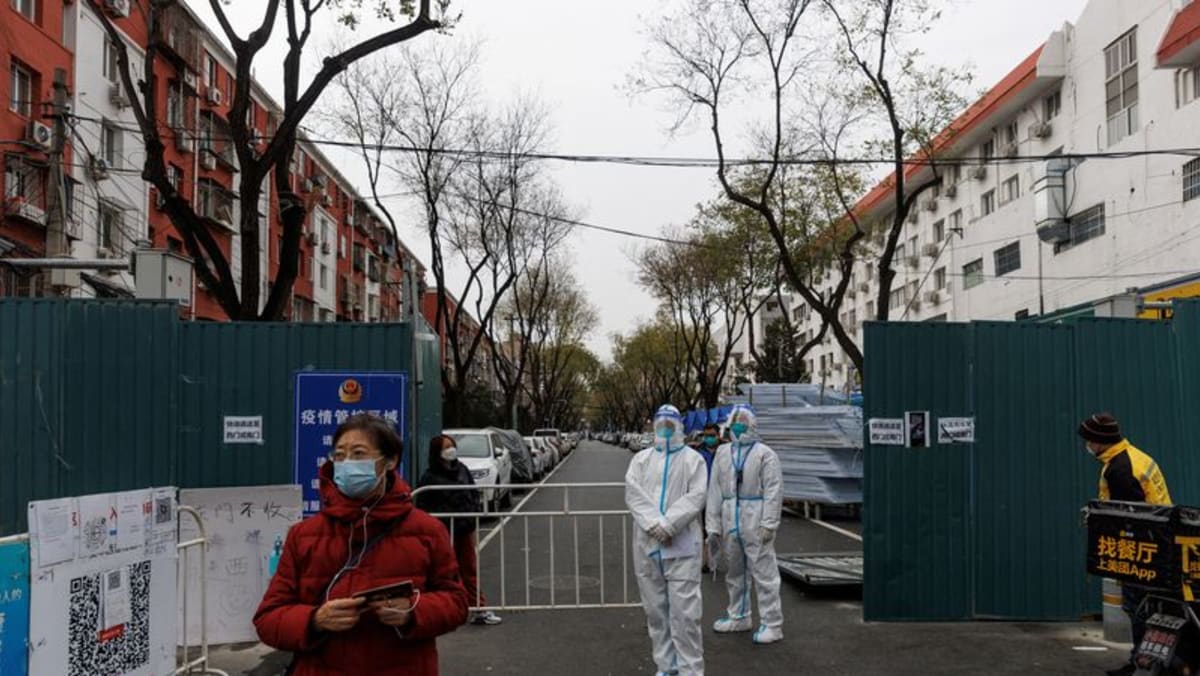
BEIJING: The rare street protests that erupted in cities across China over the weekend were a referendum against President Xi Jinping's zero-COVID policy and the strongest public defiance during his political career, China analysts said.
Not since the protests of Tiananmen Square in 1989 have so many Chinese risked arrest and other repercussions to take to the streets over a single issue.
"During Xi Jinping’s 10 years in power, these are the most public and most widespread displays of anger by the citizenry against government policy," said Bates Gill, a China expert with Asia Society.
Public dissatisfaction with Xi's zero-COVID policy, expressed on social media or offline in the form of putting up posters in universities or by protesting, is Xi's biggest domestic challenge since the 2019 protests in Hong Kong against an extradition bill.
Xi had claimed personal responsibility for leading the "war" against COVID-19, justified zero-COVID with a need to "put people above everything" and counted his "correct" COVID-19 policy among his political achievements when he sought a precedent-breaking third term at the 20th Communist Party Congress in October.
Nearly three years into the pandemic, China says its policies are not geared towards having zero cases at all times but instead, are about "dynamically" taking action when cases surface.
Even though the protests are embarrassing for Xi, they come nowhere near to toppling him, analysts said, because he has full control of the party, military, security and propaganda machinery.
RESISTING LOCKDOWN
While some protesters chanted "Down with Xi Jinping, Down with Chinese Communist Party", most other people only concerned themselves with resisting a lockdown of their residential compounds or exemption from frequent tests for the virus.
"Once these self-interests are met, most people will be appeased and will move on," said Chen Daoyin, a former associate professor at Shanghai University of Political Science and Law, now a commentator based in Chile.
Students were not highly organised or led by a central figure, Chen said. Protests took place in Beijing, Shanghai, Wuhan, Chengdu and Urumqi.
At the time of the Tiananmen protests and crackdown by Chinese authorities, the last occasion that demonstrations led to the replacement of the party's general secretary, there were internal divisions amongst top party leaders about how to manage the crisis and what path to take China in future.
https://news.google.com/__i/rss/rd/articles/CBMidWh0dHBzOi8vd3d3LmNoYW5uZWxuZXdzYXNpYS5jb20vYXNpYS9jaGluYS1wcm90ZXN0cy1oaWdobGlnaHQteGlzLWNvdmlkLTE5LXBvbGljeS1kaWxlbW1hLXdhbGstaXQtYmFjay1vci1ub3QtMzEwNzM2NtIBAA?oc=5
2022-11-28 21:52:00Z
1671056854
Tidak ada komentar:
Posting Komentar